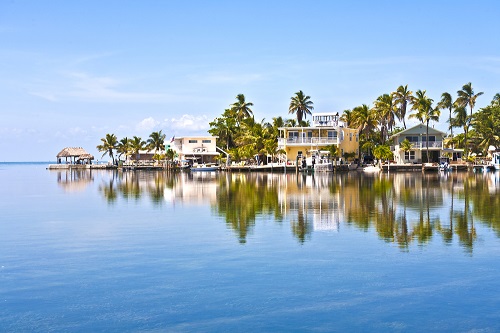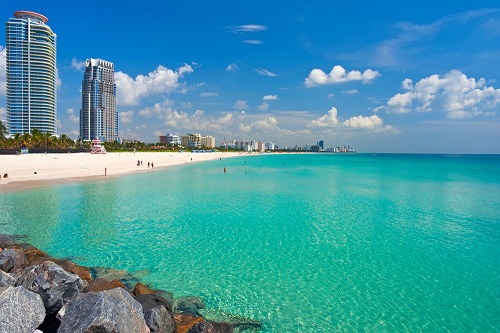Florida is a popular destination among expats, particularly British retirees. Many people choose to retire there for the warm weather and the ease of communication. If you are thinking of moving to the ‘sunshine state’, what do you need to know? We will take a look at the top ten things to consider.
Can I find a job?
One of the state’s biggest employers is the Disney corporation (Walmart is the largest). Tourism, aviation/aerospace, life sciences and finance are the main areas of employment, but Floridians also find work in the agricultural sector, medicine, commercial diving, construction, and retail. The state is said to need statisticians and a range of medical support personnel. Orlando has the primary job market in the state.
What is the housing market like?
Florida’s accommodation is averagely priced when compared to the rest of the USA. Some property experts say that you are likely to pay around $280K to $330K for a family home, and monthly rental prices are around $1200 to $1800. Waterfront or beachfront homes are usually more expensive.
Bear in mind that you may also have to pay expensive home insurance costs, as Florida can be subject to some extreme weather. Hurricane and flood insurance is a must, and this is likely to be on top of your existing home insurance. Some realtors advise that Florida is currently seen as the ‘new California’ and that prices are therefore artificially inflated.
Locals recommend the area around Pinellas County and down through Manatee County, plus Bonita Springs. Anna Maria Island is said to be a good bet. Note that locals also prefer higher ground, to avoid hurricane-related flooding. Hollywood is another popular destination. North Florida is less built up than the southern part of the state.
To find an apartment, you can use an agent, or online property listing apps such as Craigslist can help. Experts suggest finding a short-term rental first and using it as a foothold to find somewhere more permanent.

What is the cost of living in Florida?
The cost of living in Florida is slightly below the national average. However, this does depend to some degree on which city you choose to live in. Daytona Beach is comparatively cheap, whereas Fort Lauderdale is more expensive than the national average. Utility costs also vary considerably from city to city, and so do grocery costs. However, you will save on income tax – Florida does not charge it, which is one of the reasons why it’s so popular! Note that the minimum wage is substantially below the national average: around $8 rather than $11 per hour.
What is the crime rate in Florida?
The rates of violent crime and crimes against property are slightly higher than the national average, but the Florida Department of Law Enforcement notes that crime rates overall dropped by 12% in 2020 and are generally declining. Locals say that ‘crimes of opportunity’ are more common, so take some basic precautions. Don’t leave your valuables in a bag on the beach when you go swimming, for instance! South Florida is supposed to have higher rates of crime than the north of the state. However, if you’re a little careful on the streets at night, as you would be in most cities, you should experience few problems.
What is the quality of life like in Florida?
Florida’s climate (hurricanes apart) make it a nice state in which to live, as noted, but it also has a number of high-end and luxury facilities, as well as some excellent opportunities for dining. The state has some beautiful beaches, diverse wildlife and interesting scenery, such as the Keys and the Everglades. If you’re into outdoor sports, surfing or sailing, it’s an ideal location for you.
Florida is legendarily family-friendly, with a wide range of theme parks, and it is cosmopolitan, with a diverse population. If politics is important to you, note that south Florida tends to be somewhat more liberal overall than the north of the state.
Is it a healthy place to live in?
An outdoor lifestyle gives you plenty of opportunity to stay healthy, but the humidity can get to some people (and so can the range of bugs!). In 2019, the state was ranked as the 33rd healthiest state in the union – putting it among the least healthy states in the US. This may be due to the relative age of the population, as the sunshine state appeals to an older demographic. Health authorities cite obesity and a low level of physical activity as issues, plus a relatively high rate of drug-related deaths.

What is the quality of education?
The public school system varies, and you should note that teachers’ pay is low. Some school boards have voted for a pay rise for staff. Overcrowded classrooms and a lack of support have led to a significant teaching shortage. The Florida Education Association reported in January 2020 that over 2,440 teaching positions remained open in the state, and there is a need for recruitment. If you have children of schooling age, therefore, you may want to consider the private sector. The state also has a number of universities, such as the University of Florida and Florida State University. If you are a football fan, the state has three NFL teams, plus baseball and basketball.
What is the weather like?
Florida is known as the sunshine state for obvious reasons. It’s sub-tropical climate results in mild winters and long, hot summers. Most days see a fleeting rainstorm, and it can be humid. The main bad news about Florida’s climate is that, as noted above, the state can be prone to hurricanes. Late summer is hurricane season, but they can occur at other times of the year, too, so make sure you’re aware of hurricane safety protocols as soon as you relocate.
What is the traffic like?
Driving is the main form of transport in Florida, unless you choose to fly or take Amtrak between the major centres. Within cities, you should be able to get by using buses or trolleys, with the addition of Uber and other services, and a couple of places have bicycle sharing initiatives. Floridian drivers do not have a good reputation.
What will life in Florida be like for my pet?
Florida is not hugely dog-friendly. Although most state parks have dog-permitted areas, dogs are often not allowed on beaches, and you must keep them on a leash if you do take them onto the beach.

